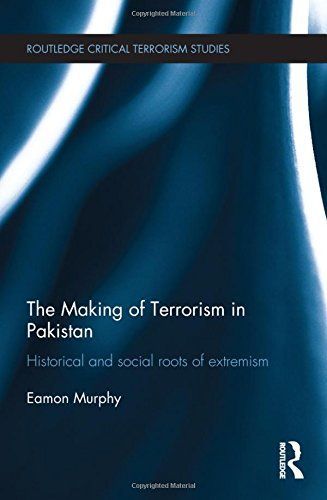
The Making of Terrorism in Pakistan Historical and Social Roots of Extremism
This book aims to explain the rise of Pakistan as a centre of Islamic extremism by going back to the roots of the state and the nature of Islam in Pakistan. The broad aim therefore is to examine the social, and political and economic factors that have contributed to the rise of terrorism in Pakistan. An historical approach demonstrates how religion per se has not been the dominant factor in the rise of terrorism in Pakistan. Most Pakistanis have not in the past been susceptible to Islamic extremism; rather, religion has been largely a cloak to hide the individual and class interests of the elite, who have promoted, nurtured and supported religious extremism to advance their personal and class interests. In this sense, then, terrorism in Pakistan has been manufactured because of more mundane political and class interests. A logical consequence of this argument is that the most effective way of combating terrorism in Pakistan lies in addressing the underlying political, social and economic problems facing the country. Three major themes emerge from this historical exploration of the roots of religious extremism and terrorism: the dominant role of the Pakistani military in politics, economics and society and the directly related near failure of democracy; the key role that the USA has played, particularly with its support for military dictatorships; and, finally, and perhaps most important, the malignant influence of Saudi Arabia and its promotion of the narrow extremist Wahhabi form of Islam. Each of these factors has been intertwined and interrelated, and have all contributed to the decline of democracy and the emergence of terrorism. The author explores the root causes of terrorism in Pakistan, going back to political developments during the 1930s and 1940s that led to the formation of Pakistan, and then the subsequent history of Pakistan to the present day. In particular, it focuses on how the state itself created conditions that were